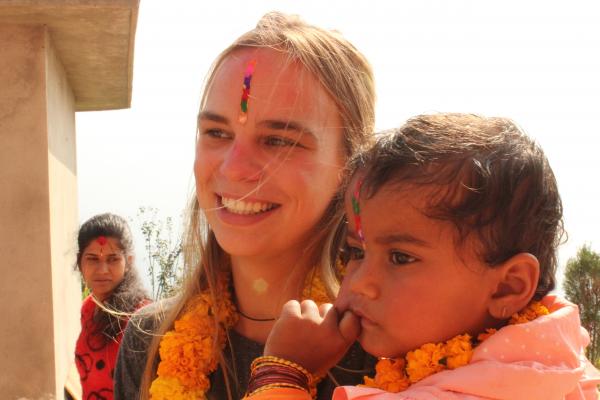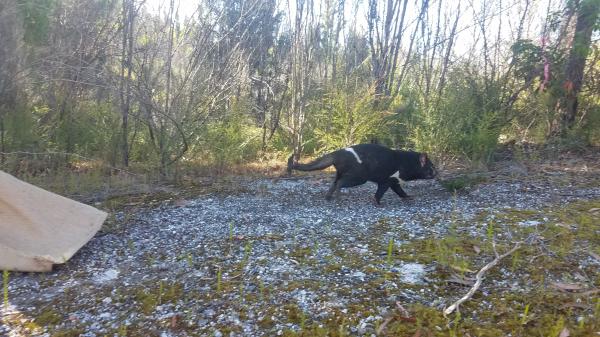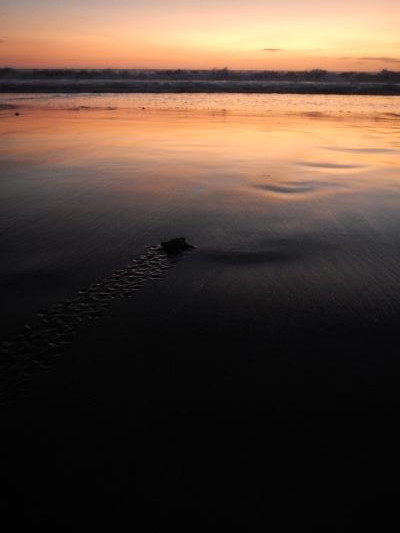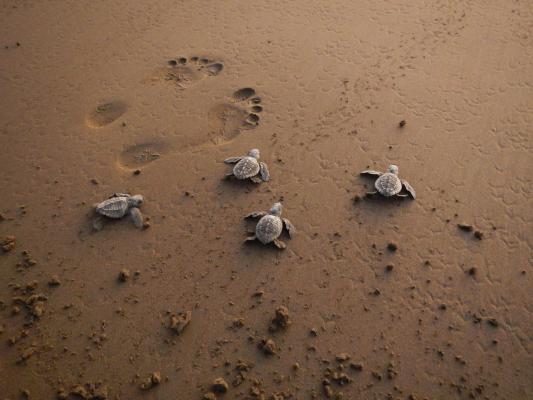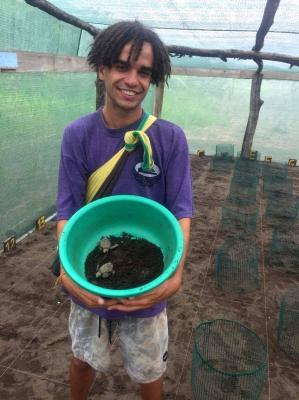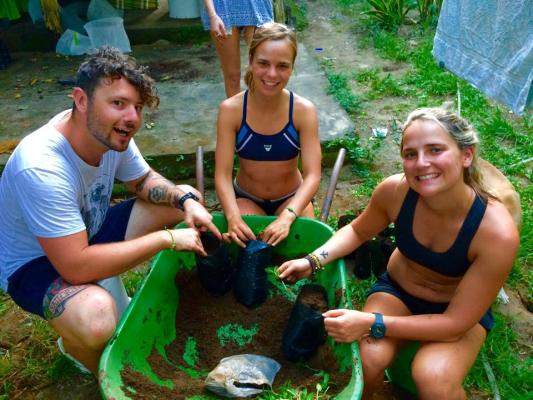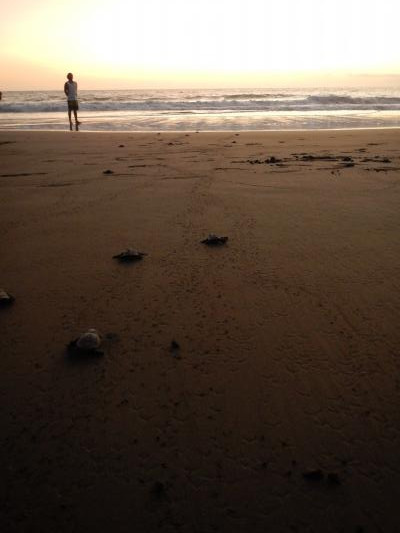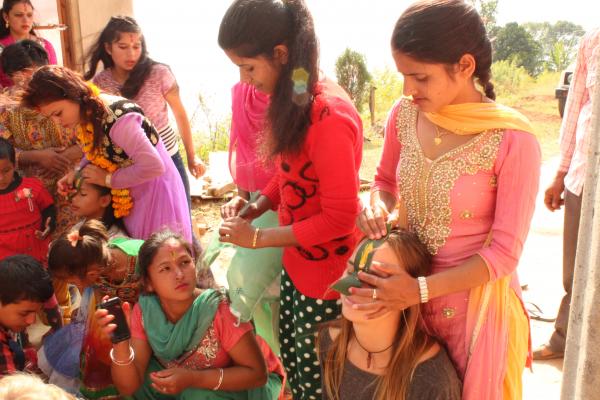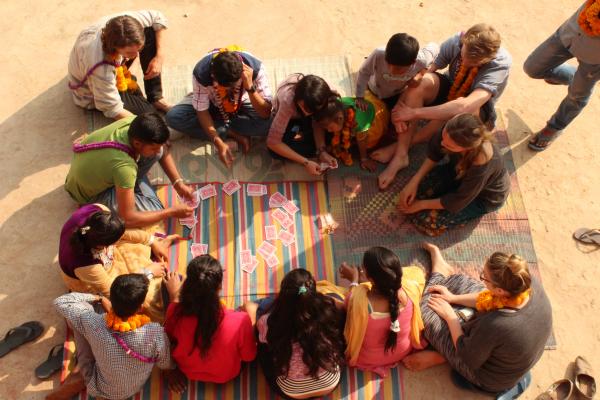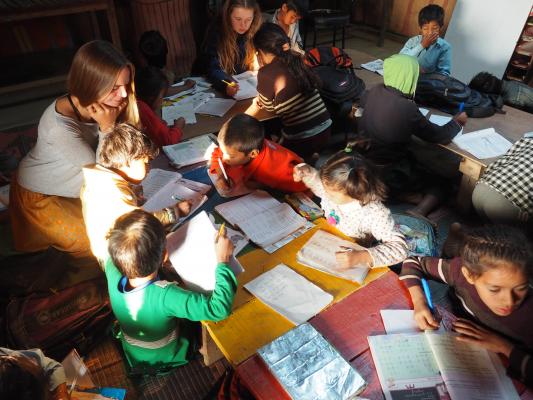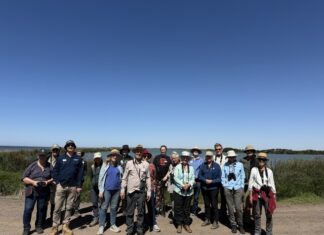Geelong born-and-bred siblings Sophie and Oscar Radalj saved turtles in Costa Rica through a Deakin University program that won a nationwide award this Wednesday.
They speak to Luke Voogt about making a difference for wildlife and people alike across Australia and the world.
The sun set over the ocean at a Costa Rican beach as Sophie Radalj released about a dozen newly-hatched turtles into the sea.
“We released them by hand and watched them swim off into the sunset,” she remembered.
Sophie visited Verdiazul turtle refuge at age 19 in 2014 through Deakin University’s Global Experience Program, which this Wednesday won at the Australian Awards for University Teaching.
Universities Australia recognised Burwood-based associate professors John White, Raylene Cooke and Mike Weston at the awards for their role in the program.
Through the program Sophie helped protect turtle eggs from both natural predators and poachers.
“It was the first time I had travelled overseas without family,” she said.
“To be going over for a cause I was passionate about, I was pretty ecstatic.
“It really helps to be out in the world when you’re learning about conservation.”
Vendors illegally sell eggs from leatherback, olive ridley and black turtles at bars and on streets in South America, claiming them to be aphrodisiacs or have healing properties.
So Sophie and her colleagues patrolled the beach at night for poachers and to collect eggs at risk of exposure.
“We were wearing black so the poachers couldn’t see us but also so the turtles couldn’t, because if they get a fright they’re not going to lay their eggs,” she said.
“We would keep an eye out for when the turtles came up to lay their eggs.”
They took any at-risk eggs to the refuge to incubate for several weeks before releasing the hatchlings.
The next summer the program took Sophie to an organic farm in Nepal, which doubled as a refuge for women – and their children – escaping domestic violence or ostracism due to mental health or divorce.
Sophie helped run the farm, along with teaching English and other subjects.
“We were lucky enough to be there for one of their festivals, so we did a lot of Bollywood dancing and they poked fun at our dancing,” she laughed.
She remembered a girl who came to the farm as an orphaned toddler.
“You could see her become a bit of a leadership figure in her group of kids. Having all these women on the farm, she sort of accumulated all these different mothers too.”
After university Sophie worked as a tour guide at Uluru to learn more about Aboriginal culture and history.
The gig was a “stepping stone” to her next job co-ordinating a local Aboriginal land trust and ranger team.
Her experience supporting and empowering women set her apart from other candidates, she said.
“In my interview they were quite interested in my trip to Nepal and the skills I got from that. That was a real surprise.
“A focus of working in that ranger team was to get more women in the group.”
Sophie recently moved to Apollo Bay to start work with the Southern Otway Landcare Network.
Her younger brother Oscar followed her into wildlife conservation biology at Deakin University in 2016 and visited a similar Costa Rican turtle refuge through the same program.
“I saw a heap of pictures when she got home,” he said.
“Another friend went on it. It seemed very fulfilling and fun.”
He also completed placements at Mount Buffalo, Cape Conway and in remote Tasmanian rainforest taking samples of facial tumours that currently plague Tasmanian devils.
“That was wild,” he said.
The deceptively cute Tassie devils would shriek as the researchers weighed them and took samples as humanely as possible, before releasing them.
“It’s all talk, they’re actually quite timid,” Oscar said.
“The second you would open the bag to release them, they would sprint in the opposite direction.”
After working as an environmental consultant for a few years, Oscar is heading back to university to become a teacher.
Who knows, his future students might some day save endangered animals or help remote communities too.


